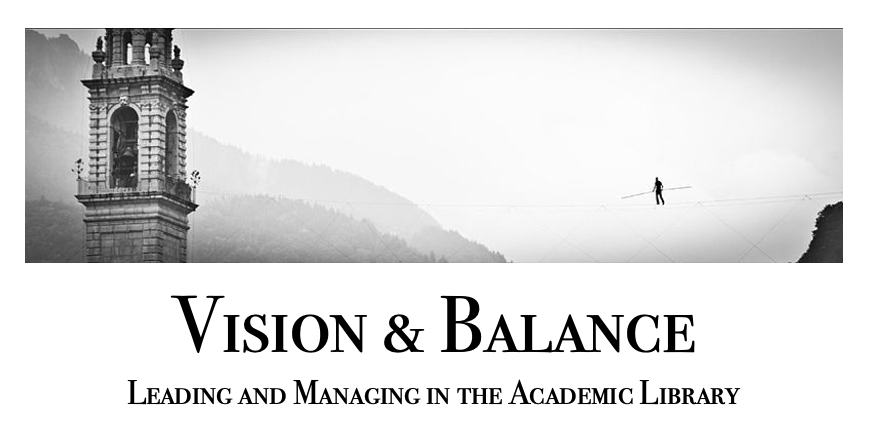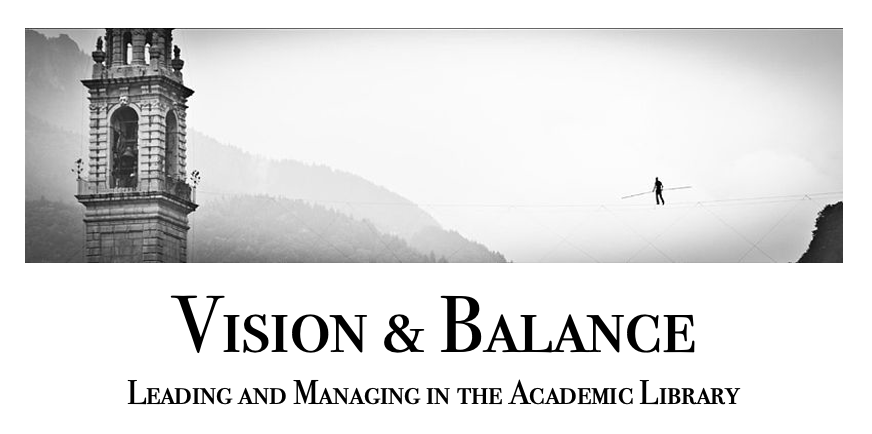If You Must Sustain a Budget Cut, Make Sure It’s for the Right Reason
Don't let your budget get cut because your boss doesn't understand what the library does or how it contributes to campus priorities.

In libraries, we’re dealing with constantly increasing costs and are funded by institutions that are experiencing the same thing. This means not only that we’re competing with other campus units for budget enhancements each year so that we can continue doing what we’ve been doing – and hopefully expand collections and services a little bit – but we’re also, most of us, competing for those enhancements in an environment of significant institutional constraint.
To put it more simply: we’re not just fighting to get more money to keep up with price increases; we’re fighting to keep what we have. And sometimes, because campus resources are strictly limited, we'll lose that fight. Despite our most valiant and herculean efforts, there will be years when the library budget gets cut.
In those moments, it will be tempting to avoid asking why the budget was cut. I mean really, does it matter? Whether it was because the university applied a 3% cut to every program and unit across the board, or because a cut was applied in a very targeted way to the library and one or two other programs on campus, the result is the same – and so is the impact to library services and the campus community.
But the why question actually matters very much, for a number of reasons. For one thing, budget cuts are going to be implemented again at some point in the future, and knowing why the library was targeted this time will help you prepare better against that future scenario. For another thing, it matters very much whether the campus cut the library’s budget reluctantly or willingly. (Campus officials, of course, will tell you either way that they implemented the cuts with great reluctance, that the library is the heart of campus, and that it’s killing them to reduce the budget by even a penny. Take those assurances with a grain of salt and do not assume that they tell you anything meaningful about where the library lies on the list of campus priorities. I mean, honestly – what else would you expect them to say?)
What you must prevent, as a leader, is the library getting a budget cut because your campus administration doesn't know or understand what the library does.
This is one of those moments when an open, trusting relationship with the administrator to whom you report is absolutely essential. It’s one of those moments when you'll need to cash in some of the political capital you’ve been building up and say to your boss “Look, I want you to be as candid and open with me as you can: why did the library’s budget get cut? Was it despite the fact that the library’s collections and services are genuinely seen as centrally important, or was it because there is decreasing confidence in the degree to which the library is contributing to campus priorities, or some combination of those, or something else?”. By this point, you should have established with your boss the fact that you can be trusted with honest answers and that you genuinely have the best interests of the university (not just your territorial interests) at heart. It should be clear that you’re asking in a spirit of sincere interest and a desire to lead the library towards a place of greater contribution.
And this leads to my central point for today’s article. If your administration fully understands what the library does and decides, nevertheless, to cut your budget, that’s fair. The library is – and should be – no more immune from budget cuts than any other important campus program.
However, what you must prevent from happening, as a library leader, is your budget being cut because the university administration doesn’t know or understand what you do. And this point is very important: it is not the administration's job to educate themselves about the work of the library. It is your job to gently, kindly, and relentlessly educate them.
How do you do that? The answers to that question are many, and frankly are limited only by your creativity. I’m not much of a creative thinker myself, but here are a few (fairly obvious, I confess) ideas from me, which will also serve as today’s Takeaways and Action Items:
- Invite your boss to attend an annual meeting with your entire staff at which she is invited to say a few words, and then invite her to stay for an annual report on the library’s activities of the past year. This meeting – or at least, the part to which your boss is invited – should not last more than an hour. Make sure you design that annual report with your boss’s presence in mind.
- Every time you meet with your boss, share something your library is doing that is especially aligned with the university’s mission and priorities. Gradually, over time, fill his head with examples of ways that the library is contributing directly to whatever is most important to the university: it might be research productivity, or student retention, or undergraduate teaching, or sustainability, or whatever. But make sure the examples are not just things the library is proud of, but things that contribute directly to the university’s expressed goals.
- Listen carefully to what your university president says publicly and says repeatedly (more about this in Thursday’s article). The things that she says publicly and repeatedly are the things that actually matter most to her, whatever the university’s official statements and documents might say. As you discern these patterns, look at your library’s programs and priorities. Which ones are contributing most directly to those goals? How can you demonstrate their contribution to those goals? If you were to find yourself in an elevator with the president and had 30 seconds in which to mention how the library furthers those goals, what would you say?
On Thursday we’ll delve a bit further into the importance of positioning the library as a strategic partner with campus administration, rather than as one more piece of expensive infrastructure.
